Top image: Mishal Ibrahim / Unsplash
Nicholas, 32, was sentenced to seven-and-a-half years in prison along with 15 strokes of the cane for drug trafficking, possession and consumption. After his release in March 2023, he got in touch with RICE to share his takeaways from his arrest, incarceration and reintegration into society upon release. This is his story in his own words. Read part 2 here.
Being born and raised as a Singaporean in an upper-class privileged family certainly had its perks. I will not deny the countless luxuries I had. I was living in a house along Adam Road, went to an elite primary school and went on family holidays abroad at least twice a year.
Life could not get any sweeter than that. It was a very loving household. No sibling rivalry, and my parents loved us all equally.
My dad, an expat, was a successful engineer so everything was provided for. However, due to the nature of his job, he wasn’t around much. Our relationship was good, albeit not as close as I would have liked.
By the time I was 12, he was diagnosed with terminal-stage colon cancer and passed away a couple of months later, leaving my mother to raise her three kids as a widow.
I realised from a very young age that my attitude towards life was ridiculously hedonistic. Why would I want to study so hard when I could have as much fun as possible?
Sure, studying hard gets you ahead in life. But to what end? It was just beyond comprehension in my youth. Naturally, with this mindset, I started gravitating towards friends that were ‘fun’.
It started off with a cigarette at the age of 16 and eventually led to cough syrup and valium addiction by 18. I call it an addiction because I’d do anything to get my hands on them, including stealing from my mother, classmates and even friends. I couldn’t maintain any relationships because the priority was to get high all the time.
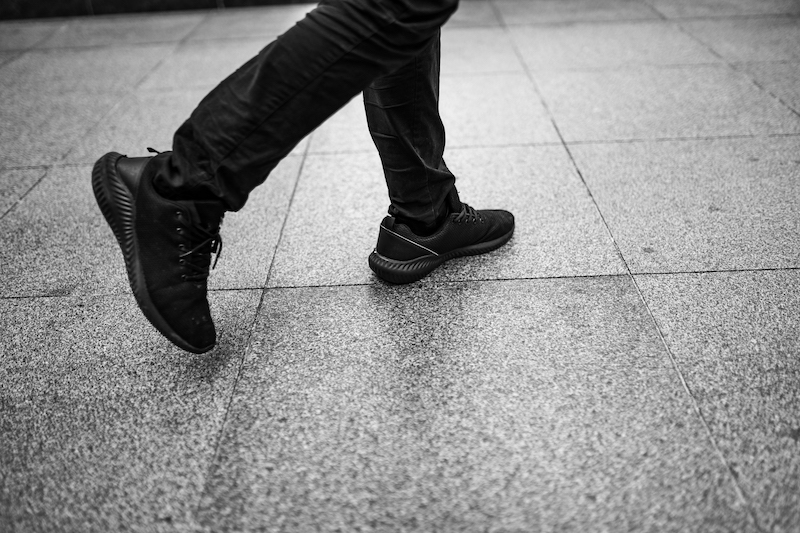
The Wrong Crowd
Mixing around with gangsters eventually led me to a drug trafficker, who eventually became my girlfriend. Constantly being around her got me hooked on meth at the age of 21. Meth is considered an upper—it tells your brain to release a dopamine hit, which is supposed to make you feel good. Funnily, my first time taking meth didn’t register as euphoric. To me, it felt pretty normal—a very smooth high. Not as intense as I anticipated.
But my girlfriend told me I was bouncing off the walls! I couldn’t stop talking, and I didn’t eat, drink water or sleep for two days.
Because I was constantly surrounded by meth, I just kept smoking. It’s not a downer like cough syrup, where you can barely function or be productive. Meth made me energetic. It was on my third try that I started to understand the high. It got me dangerously hooked on the drug.
By the time I enrolled in university to take my Bachelor’s in Psychology in 2012, I was smoking meth daily. Here’s the thing about the drug: At the start, I felt extremely productive. While studying or working on an assignment, my focus was razor-sharp. I won’t do anything else until whatever I’m doing is completed.
It became part of my academic routine. I would get all my notes and my bong out two days before an exam and cram every single important thing into my head. No sleep and no food. Just straight studying for 48 hours. That got me consistent Bs and Cs, which was good enough.
But over time, that drug-addled focus got redirected to trivial things: Playing DOTA for 18 hours straight, fixing little things around the house, and even spending hours cleaning my room. That’s a junkie’s life for you.
Eventually, I broke up with that girlfriend. I had to pay for meth now! And I could not afford it on my weekly allowance of $100.

Bad Business
I started working at a bar to afford drugs. Meth pushed me into a vicious cycle. The more you work, the more you need to smoke. If I didn’t smoke, I would not be able to go to school or work. I’d just be completely flat on my bed the entire day, unable to function. I was totally dependent on it.
While working at the bar, I started getting approached by customers. “Hey man, can you score us some weed?” they would ask. It’s odd because when you’re high, you don’t think it’s obvious to other people. But your behaviour and mannerisms can be quite telling.
My eyes were permanently dilated, and I was very jittery—I think this was what made people decide to approach me. It takes one to know one, right? It also didn’t help that I had long hair and weighed 45kg in the throes of my drug addiction.
I saw it as a business opportunity. The next payday, I ordered a hundred grams of cannabis (which went for $500 at that time) from my supplier and split it into 20 baggies. I made $1,000 in a single day from selling them. That was a lightbulb moment for me—my drug operation was on.
Soon, I became ‘that guy’ around the bar. However, the thing about fast money is that it comes and goes easily. It became a habit to invite my colleagues to clubs after work and open bottle after bottle. I became ‘the fun guy’. Life felt good, only for a moment.
I expanded my business into the university where I was studying, making numerous deals daily. Word spread like wildfire, and I eventually branched out to other colleges. You’d be surprised how many university students take drugs. I was dealing weed, ecstasy, ketamine, and the occasional LSD. Whatever they wanted, I’d have it.
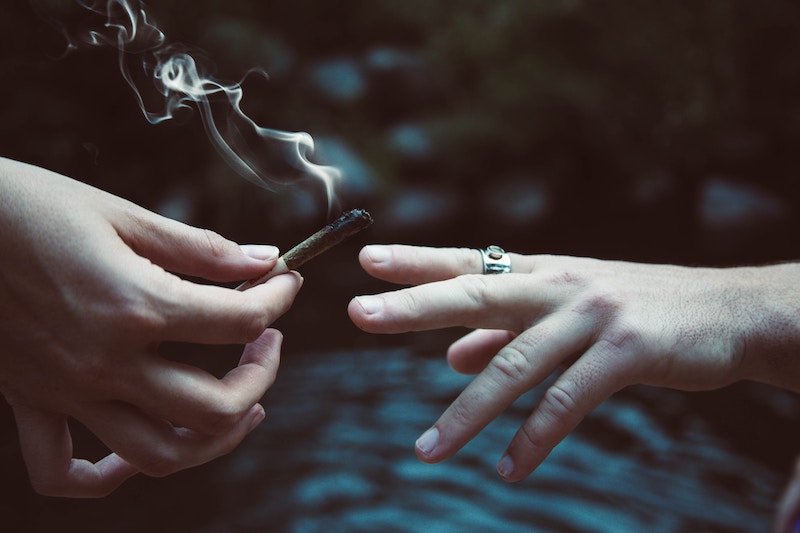
When money comes in that fast, you feel powerful. And I did not handle that power too well. Initially, I was quite a careful dealer—I only dealt with friends of friends. Deals were arranged at secluded places, and I was very hush-hush about it all.
Of course, the danger of getting caught was always there in the initial stages of dealing. But it slowly started to taper off. I gradually grew to be cocky and greedy. That was my undoing.
Drugged Up
I got sloppy. I’d deal with anyone and everyone. If it weren’t convenient for me, I’d get them to meet me at my house. Eventually, everyone practically knew where I was staying.
I was cocktailing drugs all the time too. Meth with some benzos, a kick of ketamine thrown in. And don’t forget alcohol too. I was completely out of it most of the time.
In December 2017, a week before Christmas, a good friend shot me a WhatsApp message asking for 150g of weed. We never used WhatsApp for our deals. It was always Telegram, but this message didn’t strike me as suspicious.
I was out with my mum for dinner, so I told him to drop by my place at 9 PM instead. After arriving home, my mum and I got out of the car and walked towards our block. From 20 metres away, we saw probably 15 people surrounding the entire block. This didn’t ring any alarm bells either. I was drugged up, remember?
One of the men came up to me and flipped his Central Narcotics Bureau (CNB) identity card. That’s when I knew it was all over.
My mum’s immediate reaction was one of shock and despair. She was never aware of what I was up to. I asked the officers to allow me to explain the situation to my mother, and we both broke down in tears.
My siblings held suspicions and tried to talk me out of whatever I was doing, so their reactions were more of disappointment rather than shock.
CNB officers then brought me up to the house and completely flipped my room upside down to uncover my drug stash. They eventually found 380g of weed, about 5g of meth, 13 pills of ecstasy, a little bit of ketamine and 100 pills of Erimin-5. I was immediately arrested and brought to Cantonment Police Station to be processed and charged.
In Disbelief
I was eventually released after posting a $130k bail. I hired one of the best criminal defence lawyers to take my case. When we met up a couple of days after I was out on bail, I received some unsettling news. The 380g of weed was the biggest problem—according to my lawyer, I was looking at a minimum of 15 years for that alone.
I immediately freaked out. After imprisonment, I’d be almost 40! I immediately called up a few shady friends and arranged to flee Singapore via an illegal jet-ski ride to Malaysia in the middle of the night. I held a United States passport at that time as well, so the plan was to run to Malaysia, make my way up to Cambodia and fly to the US from there. They told me to prepare $10,000, all in.
How do you get such a large sum of money in the shortest possible time? You deal drugs. So I got back in the game again.
Unbeknownst to me, CNB was already tailing me and watching my every move. I had just completed a transaction and went home to sleep at 5 AM. Two hours later, CNB officers were in my room, shaking me awake. I opened my eyes, saw two officers searching my bag for my stash and heard the words again: “You’re under arrest”.
This was the end of the first part of my life. Things would never be the same again.
‘Incorrigible’
I was sent to prison in remand because my bail was revoked, and I would not be offered bail again. I entered Changi Prison in February 2018 and spent a year and a half waiting for my eventual sentence.
Entering prison was the hardest period in my life. I was going through very bad withdrawals from drugs and was dead asleep for most of the first two weeks. Sleep, wake up, eat, shower. Rinse and repeat. On top of this, I had to adapt to all kinds of people and prison culture. But the most difficult thing to accept and get used to was the lack of freedom and decision-making.
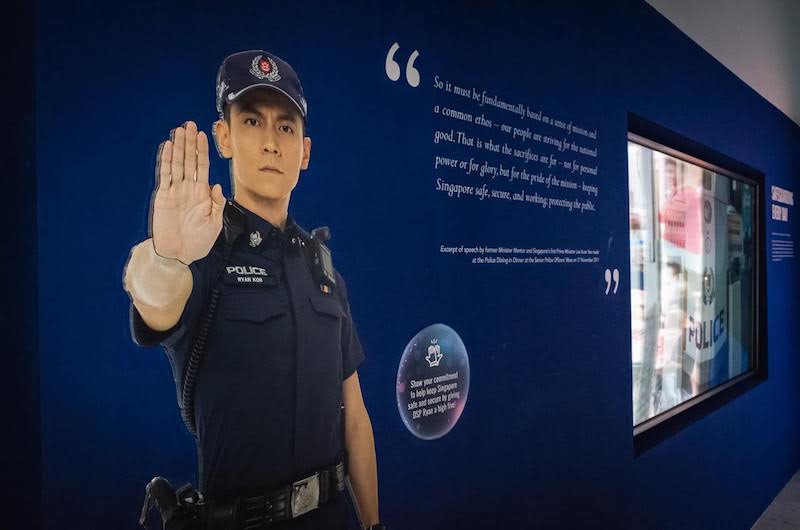
Because I was arrested twice for the same drug trafficking charges (and had multiple drug possession and consumption charges amounting to 23 charges in total), the initial recommendation by the Deputy Public Prosecutor was a 10-year sentence with 10 strokes of the cane.
Thankfully my lawyer managed to mitigate it, and I was sentenced to seven-and-a-half years imprisonment along with 15 strokes of the cane in August 2019. This was a marked difference from the usual five years, five strokes at most first-time minor drug dealers get. Apparently, the judge wanted to “teach me a lesson” because I was “incorrigible”.
About 15 friends and family were present for my sentencing. Tears were shed. During the five minutes I had to talk to my mother after my sentencing, I promised her that this experience had changed me. Things would start looking up from here on out, I assured her.
The months afterwards were torturous because of my state of mind. I think most first-time prisoners have difficulties accepting the circumstances and live in self-denial. “How can this be happening to me?” I kept asking myself.
One constant thought throughout this time: “I’m not supposed to be here. I’m educated, and I have a future.”
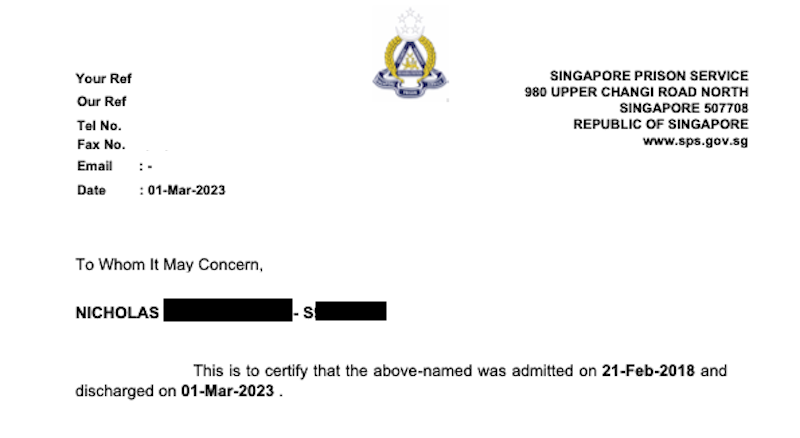
From Privilege to Prison
Prison doesn’t care who you are. You break the law, you will be sent to prison—regardless of who you are on the outside. After six months, I slowly started to stop wallowing. I started to socialise more with other prisoners and tried to get on with my life, given the circumstances.
I eventually got close to a handful of inmates. They became my source of entertainment, my close confidants and my buddies to exercise with. We told each other about our lives and gave advice. They helped me stay sane in insane circumstances.
As I’ve learned from my time in prison, it’s always best to never take anything too seriously. Honestly, just go with the flow. Keep things light-hearted and take everything with a pinch of salt.
I’ve seen loads of people who are too serious, and they just constantly get into fights or arguments with other inmates. I’ve seen people get into fights because their cellmates shower for too long or eat too slowly. Because we’re all cooped in our cells for up to 23 hours a day at times, an unfavourable change in tone of voice can trigger fights.
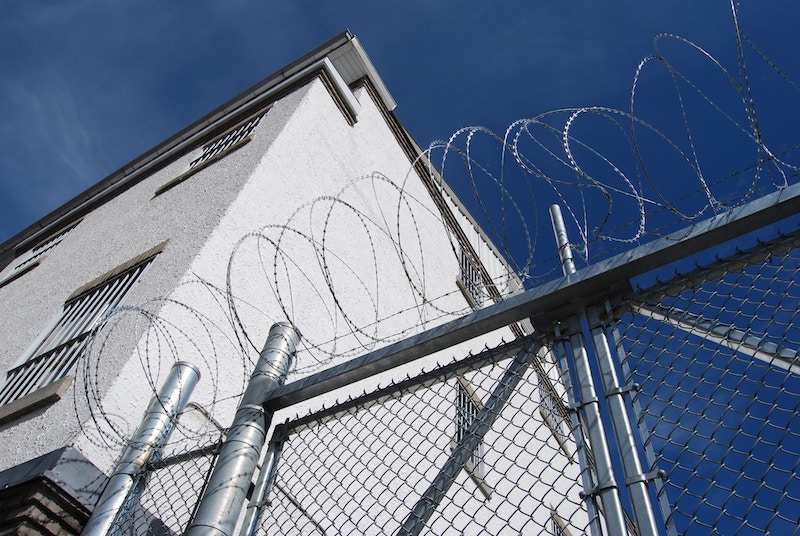
Prison officers also come in different forms. More often than not, there are very kind and don’t try to make life any more difficult for us. Sometimes they become so personable that you can even have decent conversations with them. You joke around, have a good laugh together and pass the time. In the end, inmates or officers, we’re all humans. I guess that’s what forged relationships.
But then some just seem to have a general hatred of inmates. They shout or talk down to us for the slightest infringements like not tucking in our shirts. Some are just downright rude to us, which paints a somewhat different picture from what the CNA documentary tries to portray.
Prison food, in all honesty, was a delight for me. Different clusters have different standards, but Cluster A has (hands-down!) the best food in prison. Some people say prison food is not fantastic, but I beg to differ. Even thinking about some of the dishes as I write this now brings up memories.
Dinners are meals I always look forward to. You’re served rice, chicken/fish/sardines, vegetables and gravy. The gravy is always the most important. It was always a celebration when they had Kung Pow sauce or any sort of curry. I know I will get a lot of flak from other ex-inmates, but to me, it was great!
Caning, on the other hand, was one of the most painful things I’ve ever experienced.
Ccontinued in Part 2.






